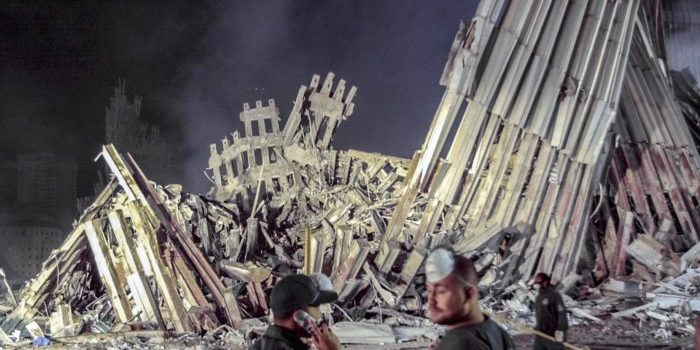(Ken Silva, Headline USA) More than 20 years after the deadliest terrorism attack in American history, the FBI still wants to limit the disclosure of evidence from that case.
Justice Department attorneys wrote a letter on June 14 to the judge presiding over the long-running 9/11 civil litigation, informing him that the FBI still wants more time to review evidence.
“In the FBI’s view, it is not appropriate to seek a blanket Privacy Act order unsealing a large collection of documents before the FBI has had the opportunity to review them …,” the DOJ attorneys said.
“Moreover, while the majority of the redactions identified through the FBI’s review to date have been subject to the Privacy Act, the FBI has a broader law enforcement interest in avoiding wholesale public disclosure of the personally identifying information of U.S. persons who were witnesses or of investigative interest in FBI investigations,” they said.
“To the extent [plaintiffs] seek an order authorizing disclosure of information subject to the Privacy Act, they should do so with regard to specific redactions or categories of redactions.”
The judge has yet to rule on the matter.
The FBI’s move to suppress 9/11 evidence came days before a bombshell 60 Minutes report revealed that the bureau had been hiding footage of a Saudi Arabian official Omar al-Bayoumi “casing” Capitol Hill in June 1999—months before al-Qaeda made the decision to include Washington DC in its terrorist plot. Numerous investigators believe the Capitol building was the target of Flight 93, which instead crashed in Pennsylvania.
“British police are believed to have turned over the video to the FBI shortly after 9/11,” said a 60 Minutes reporter. “Why, after more than 20 years, is it just now surfacing?”
Meanwhile, last December a military judge at Guantanamo Bay ordered the FBI to produce 3,000 pages of documents about al-Bayoumi, who was a subject of FBI investigations for more than 20 years because he was the handler for two of the plane hijackers, Nawaf al-Hazmi and Khalid al-Mihdhar.
Shockingly, SpyTalk also published last year a sworn statement from Office of Military Commissions investigator Don Canestraro, who said that Bayoumi was a CIA asset.
According to Canestraro, at least two FBI agents told him that the CIA had attempted to recruit al-Hazmi and al-Mihdhar. The CIA was directing its recruiting efforts through Bayoumi, Canestraro said.
Families of 9/11 victims have lamented that alleged terrorists at Gitmo are being able to access more information about the incident than they are.
“The defense counsel for those accused of mass murder on 9/11 is getting more access to documents than the terror victims themselves,” a man who lost his father from 9/11 told SpyTalk.
Ken Silva is a staff writer at Headline USA. Follow him at twitter.com/jd_cashless.

